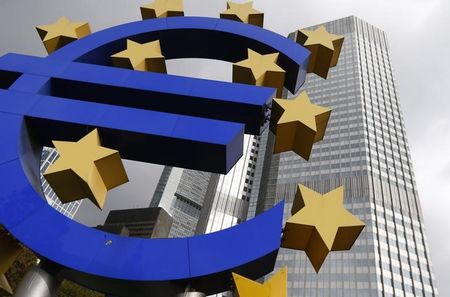DUBLIN (Reuters) - Then European Central Bank head Jean Claude Trichet told Ireland in November 2010 that it would not extend further emergency funding to the country's banks if Dublin did not sign up to a bailout, according to a letter published in the Irish Times on Thursday.
The letter, dated Nov. 19, was sent by Trichet to then Irish finance minister Brian Lenihan two days before Ireland sought an 85 billion euro bailout from the European Union and International Monetary Fund that it completed last year.
It was also sent a day after Irish central bank chief and ECB board member Patrick Honohan said he expected Dublin to receive tens of billions of euros in loans as an EU/IMF mission arrived to examine what measures may be needed under a bailout.
"It is the position of the Governing Council that it is only if we receive in writing a commitment from the Irish government vis-a-vis the Eurosystem on the four following points that we can authorise further provisions of ELA (Emergency Liquidity Assistance) to Irish financial institutions," Trichet wrote in the letter, according to a copy published in the newspaper.
"1) The Irish government shall send a request for financial support to the Eurogroup; 2) The request shall include the commitment to undertake decisive actions in the areas of fiscal consolidation, structural reforms and financial sector restructuring..."
The other two points listed were that the plan include the provision of the necessary capital to restructure the banking sector and that the repayment of the funds provided in the form of ELA be fully guaranteed by the Irish government.
The Governing Council is discussing whether to release the letter. An ECB spokesman declined to comment, noting that the Council was still meeting and no decisions had yet been made public.
The contents of the letter and other correspondence between Trichet and Lenihan - know in Ireland as the "Trichet letters" - have been the source of much speculation as to how much pressure the ECB put on Dublin ahead of its application for aid.
Ireland's finance minister Michael Noonan, who took over from Lenihan after elections in 2011, said the letter would be a vital piece of documentation for an enquiry into Ireland's banking collapse due to start next year.
ELA is effectively emergency funding given by euro zone national central banks to strapped commercial banks. The loans are given at the discretion of the national central bank although they have to be approved by the ECB.
Any changes to the limits of ELA require a two-thirds majority in the ECB's 23-member Governing Council. The Governing Council approves maximum ELA amounts for each individual bank.
Irish banks became reliant on central bank loans to fund their day-to-day operations after they lost tens of billions of euro in deposits and were largely cut off from wholesale lending markets in the weeks leading up to the bailout.

Irish-based banks' reliance on emergency funding hit a high of 187 billion in February 2011 and has since fallen below 20 billion euros as the economy and banking sector recover following the country's financial crisis.
(Reporting by Padraic Halpin and Paul Carrel in Frankfurt; Editing by Toby Chopra)
